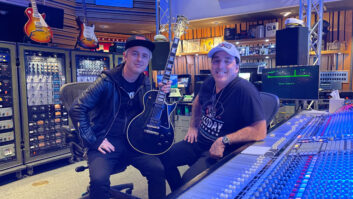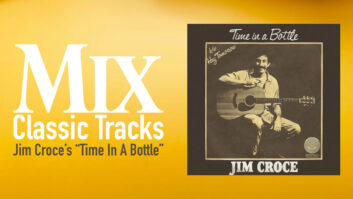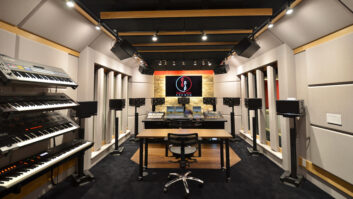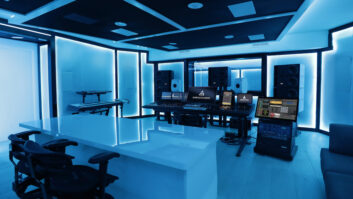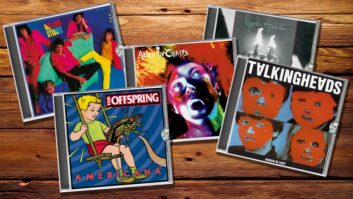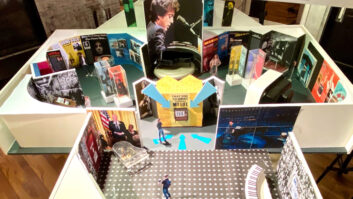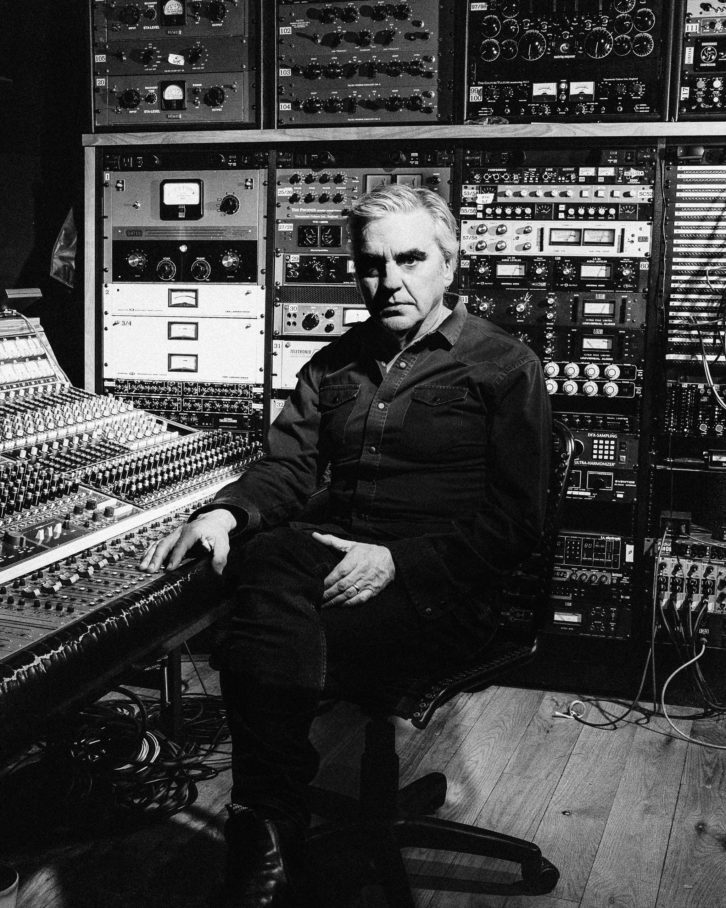
Austin, TX (October 7, 2022)—When Spoon drummer and co-founder Jim Eno began planning his new immersive mix room, he initially thought he would set it up in the tracking space at Public Hi-Fi, the recording studio he has owned and operated in Austin, Texas, since 2006.
“The problem is, my live room isn’t massive,” Eno says, “so anytime I needed to do a tracking session, I would need to push that Atmos system to the side.” That wasn’t going to work, as it would obviously mess with the system tuning and calibration. “Then Gerardo Larios, who is Spoon’s guitar player and keyboard player and my best friend, said, ‘Hey man, I have this place outside of my house. Why don’t you just set up there?’”
The room now features a Kali Audio speaker system, comprising seven IN-8 models on floor stands for LCR, sides and surrounds, four IN-5s mounted on a pair of trusses overhead, and a pair of WS12 subs. “It’s a pretty great system and was really reasonable,” Eno reports, also noting that the room has been calibrated and certified by Dolby.
Eno built Public Hi-Fi to replace his previous spot, a room-in-room construction in his two-car garage. That original studio had served the band well for its early album sessions, but Eno was ready for an upgrade and had also been thinking about going commercial: “I was looking at what would happen when I toured. Having a studio that would be appealing to other engineers and producers was an idea that I’d had for a long time. I liked the idea of having a diversified portfolio.”
The new ground-up construction, two stories high with floating floors, featured a tracking space designed with the help of Austin architect Mark Canada and clad with adobe brick, an idea borrowed from Steve Albini’s Electrical Audio facility in Chicago—and historically appropriate for Texas, of course. For the control room, Eno brought in renowned designer Steven Durr from Nashville.
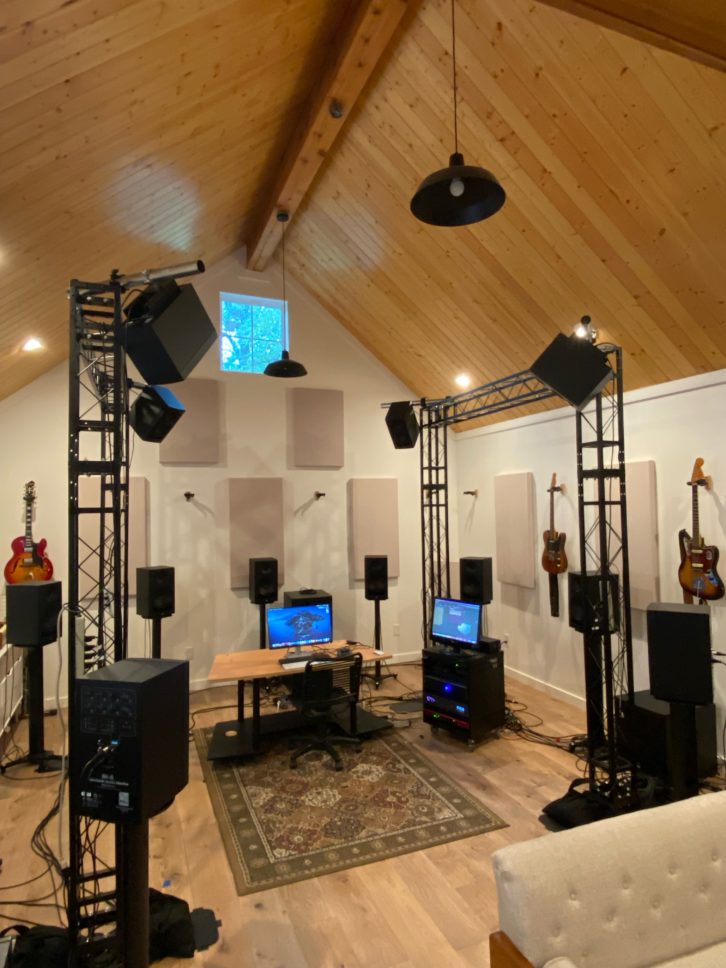
The original garage studio, completed in 1998, had housed an Ampex MM1200 16-track tape machine purchased from John Vanderslice and a Trident 24 desk. Then, a few years before he built Public Hi-Fi, Eno found a Neve 8016 console in England manufactured circa 1969 or ’70, which he had restored.
The Neve came fitted with 24 channels of 1064 mic pre/EQ modules, but that’s no longer enough for today’s average project, Eno comments, so he started looking for an alternative. “I was chatting with [former AMS Neve engineer] Fred Hill in Nashville,” Eno recalls. “He said, ‘I have Leon Russell’s old API sitting in my shop. We could take your patchbay out, and I think I could fit 24 channels of his API into your console.’ So he did, and it’s totally seamless. If you want something soft and warm, you have the Neve. If you need something punchy with those transients, you have the API. And it’s also a great mix desk.”
Recording the Red Hot Chili Peppers’ ‘Unlimited Love’
Eno and Spoon co-founder Britt Daniel (lead vocalist and guitarist, and the band’s frontman and main songwriter) have long engineered, produced and mixed their own albums, but “we always bring in another producer to help us, as another perspective,” Eno says.
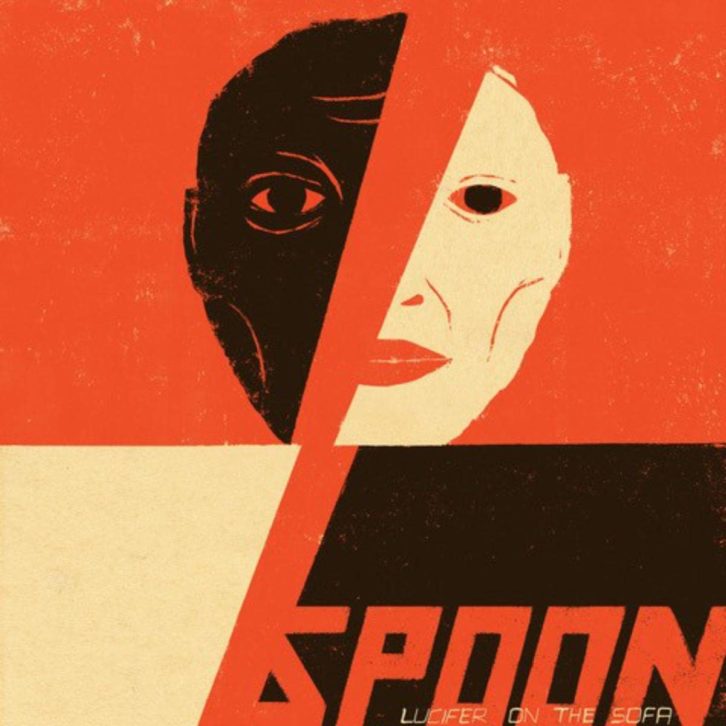
Producer Mike McCarthy worked with the band for five albums, Dave Fridmann was onboard for a few, and Joe Chiccarelli and Jon Brion have also picked up co-production credits with the band. Spoon’s latest album, Lucifer on the Sofa, released in February, was overseen by co-producer Mike Rankin, known for his Grammy-winning work with Adele. Fridmann and Justin Raisen co-produced one song apiece.
“Britt and I have an idea of what a Spoon record should sound like, but a producer and the other band members are always bringing up other ideas,” Eno explains. “We always listen to ideas and try different things. That other perspective does help, but in the end, it’s always going to sound like a Spoon record.”
While Daniel is writing for the band’s next project, Eno likes to keep himself and the studio busy. Public Hi-Fi has certainly attracted plenty of business. Gimme Fiction, Spoon’s fifth album, was the first of the band’s projects to be tracked there. Outside clients have included Lady Gaga, Justin Timberlake, Roky Erikson and Arcade Fire. Eno has worked on many, many tracks for a long list of bands for Spotify Sessions at Public Hi-Fi, and he has put his considerable engineering and production expertise to use on projects with !!!, Heartless Bastards, Poliça and The New Pornographers.
A Grammy mentor, Eno was horrified when he read the USC Annenberg “Inclusion in the Recording Studio?” report.
“It said that producers and engineers are only about 5 percent women,” he states. “I thought, ‘How can I change this number?’ So I started Project Traction, a mentorship program for female and non-binary musicians to help them get traction into the producing and recording fields. I have identified eight women that I’ve worked with before, and I’m partnering with each. That’s basically what I’ve been spending a lot of my time on.”
Eno works with each woman to pick a band and songs and work on pre-production. “We do about three days of recording in my studio, and then I mix it. They get to work in a great studio,” Eno says, and they each get a co-producer credit on a released song. It’s a way to help redress the imbalance between the proportion of women in the studio and those in the U.S. population, where they are in the majority: “It’s a scalable, real-world way to change that percentage and try to get 51 percent of producers be women.”
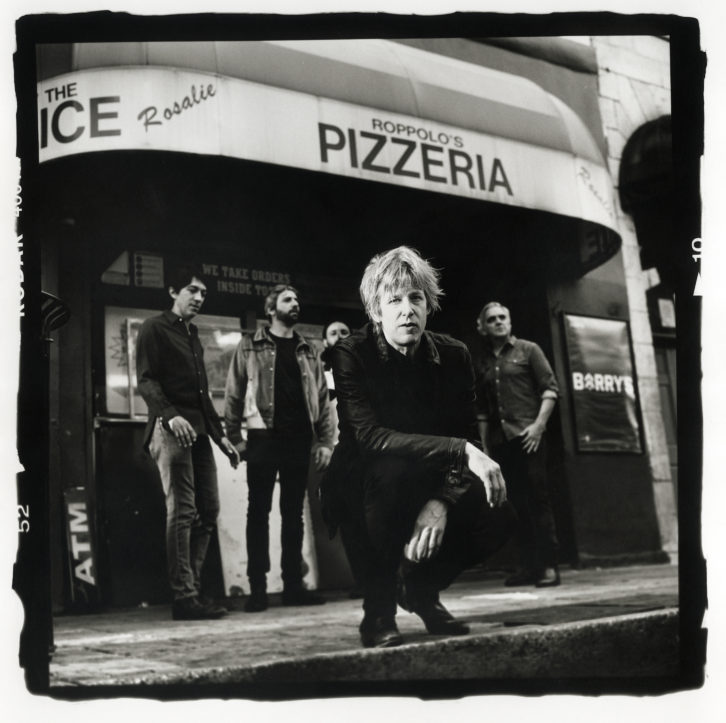
As for his new Atmos room, Eno, currently touring the U.S. with Spoon, has only had a chance to work on the Lucifer album. Eno mixed three of the 10 songs on the stereo album. McCarthy, Fridmann, Tchad Blake and Andrew Scheps also have mixing credits. The transition to immersive mixing was relatively effortless compared to stereo mixing, Eno says, where he will typically use reverbs, delays, EQ and panning to help everything coexist across two speakers.
“One of the things about spatial mixing that I really like is, when you go from verse to chorus, you can blow out the guitars wide and have this movement that’s a lot more than just left and right,” he adds. “I’m thinking specifically of ‘The Hardest Cut,’ which has a lot of big guitars. I can make them move out and then back in, and focus.”
That said, “Our philosophy is to stay true to the two-track mixes and to get some movement to add to the excitement of the mix,” he concludes, “but we’re not panning vocals around or anything like that. You have to be really careful that it doesn’t sound like a bunch of disconnected instruments and parts. You have to try to develop a glue. I love mixing in stereo, but then you listen to an Atmos system, and, wow, you’re not as confined. It’s like the Wild West; it’s really fun right now.”
